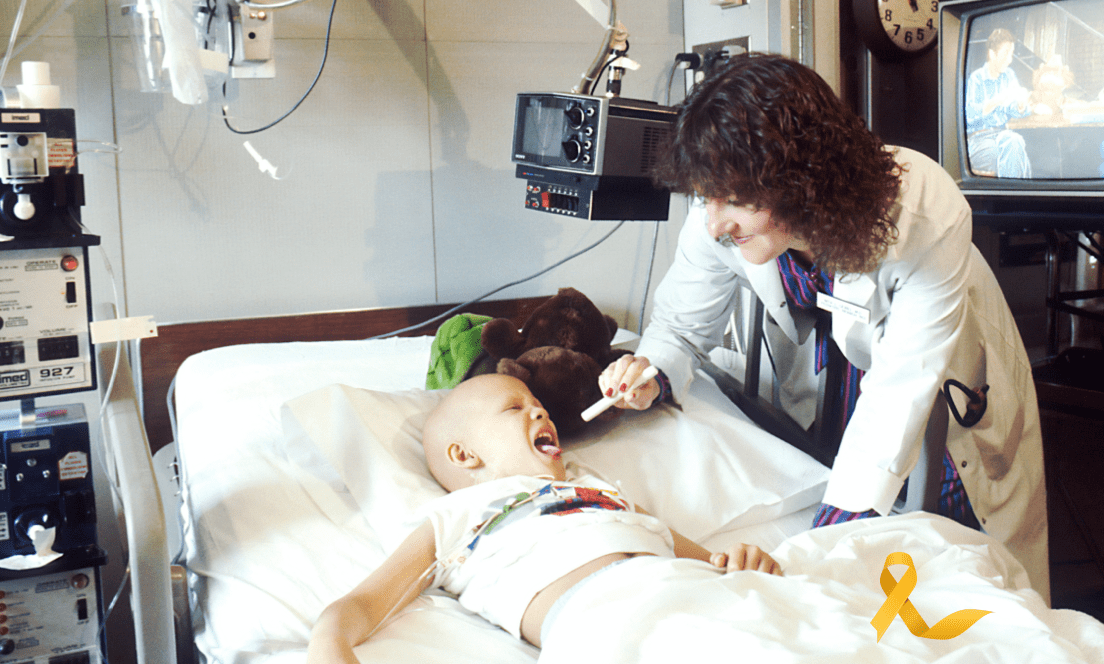Childhood Cancers
- CURIA
- Sep, 26, 2022
- Family & Friends
- Kommentare deaktiviert für Childhood Cancers

Dealing with childhood cancers
Being diagnosed with cancer is a scary proposition for adults and can derail their entire life and routine. But when it comes to childhood cancers, it has a devastating impact not just on the child but on the entire family as well. It is physically, emotionally and psychologically draining on children and their family members and dealing with it can be a living nightmare!
The good news is childhood cancers are highly treatable if diagnosed well in time. It is possible to cure most childhood cancers with medication and other forms of treatment such as surgery and radiotherapy. According to the World Health Organization (WHO), treatment of childhood cancer is now possible in all income settings and is very cost-effective as well. In high-income countries, where comprehensive services are generally available and easily accessible, more than 80% of children with cancer are cured.1
While it is not known what causes childhood cancer, growing research on paediatric cancer argues that it is attributable to early DNA changes and random mutations in the genes of growing cells of the child.2 Risk factors for childhood cancer include exposure to infection and radiation, problems with development in the womb and prior history of cancer in the family. A genetic condition known as Down’s syndrome can also increase a child’s risk of developing cancer though more research is needed on the subject.
According to WHO data, an estimated 400,000 children and adolescents among 0 to 19 years develop cancer each year. Some of the most common types of childhood cancers are leukemias, brain cancers, lymphomas and solid tumours, such as neuroblastoma and Wilms tumours. In India, it is estimated that nearly 50, 0000-60, 0000 children are diagnosed with cancer every year which roughly translates to 3% of the total cancer burden. Leukemia accounts for 40% to 50% of the childhood cancer burden in India.3 Brain tumors come a close second and the rising incidence of brain tumors in children is a cause for concern.
While common treatments for childhood cancers are the same as adult cancers and include surgery, chemotherapy, radiation therapy, immunotherapy and stem-cell therapy, they are not always treated like adult cancers. Children may receive more intense treatments and it may have a different effect on them than adults. Since the immune system of children work differently and they have a faster metabolism than adults, they respond very differently to treatment and to drugs and may have side-effects that can last till adulthood.4
Childhood cancer is traumatic for the children as well as for the entire family. Children with cancer and childhood cancer survivors experience high degree of anxiety and withdrawn social behaviour. Many of them go on to develop post-traumatic stress disorders which interferes with their academics as well. Children find it hard to balance the pressure of studies and frequent visit to the hospitals for cancer treatment.5
As with any form of adult cancer, getting an early diagnosis can help in treatment. Parents should look out for any unusual symptoms in children like fatigue, nausea or vomiting, sudden loss of vision, unusual lump or swelling frequent headaches or unusually long fever. Consulting a paediatric oncologist can help get a confirmed diagnosis if these symptoms seem alarming!
Making cancer less traumatic for the child is by no means easy but by providing emotional support along with encouraging the child to express himself or herself while at the same time being honest is often seen to be a good way. Children should get age-appropriate and honest information about the diagnosis and be reassured that the love and comfort of the carer, be it a parent, close family member or care-giver is always available.
Family support is often crucial for a child fighting cancer. However, families themselves may need physical, emotional and financial support when they have a child diagnosed with cancer as treatment is often expensive and emotionally draining. Being part of a support group can help and there are many online and offline platforms which offer counselling and support.
So, do not panic if you or your loved one has a child living with cancer amidst you. Seek the right information and consult your doctor. Keep in mind that childhood cancers are, more often than not, completely curable!
References
- https://www.who.int/news-room/fact-sheets/detail/cancer-in-children#:~:text=Cancer%20is%20a%20leading%20cause,cured%20%5B2%2C3%5D
- https://www.ncbi.nlm.nih.gov/pmc/articles/PMC7757338/
- https://www.sciencedirect.com/science/article/abs/pii/S1877782120300138
- https://www.cancer.gov/types/childhood-cancers
- https://www.crstonline.com/article.asp?issn=2590-3233;year=2021;volume=4;issue=1;spage=6;epage=7;aulast=Radhakrishnan
